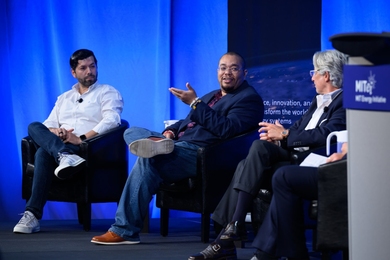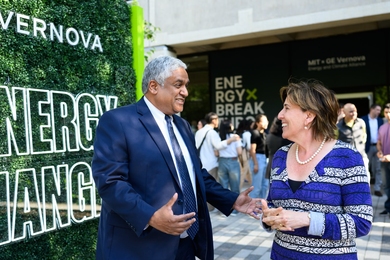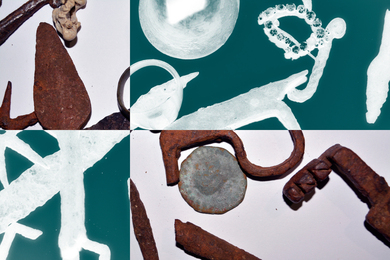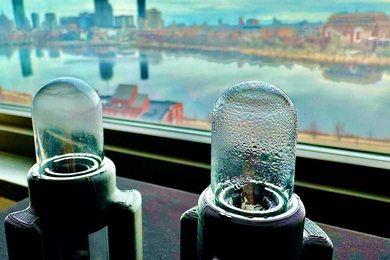The MIT AgeLab, in collaboration with General Electric, Benchmark Senior Living, and the Governor’s Council to Address Aging in Massachusetts, recognized four entrepreneurial ventures as winners of the In Good Company Optimal Aging Challenge in a reception held at the Samberg Conference Center at MIT.
The In Good Company Optimal Aging Challenge was designed to support the development of breakthrough technologies, community resources, and solutions to address the issues of social isolation and loneliness among older adults in the Commonwealth of Massachusetts. Social isolation has been identified as a significant health issue, with an observed effect on mortality equivalent to that of obesity and smoking 15 cigarettes per day. Nearly one in five U.S. older adults are socially isolated, according to research from AARP.
“The best solutions happen when we are open to learning from others, collaborating and welcoming new ideas, and adapting ideas and services that have been around for a while to improve quality of life,” said Massachusetts Governor Charlie Baker. “People are going to live a lot longer, and not only are they going to live a lot longer, they’re going to have a great deal to offer.”
“Social isolation should never be accepted as an inevitable consequence of growing old,” said Massachusetts Health and Human Services Secretary Marylou Sudders. “This challenge is the kind of forward-thinking, cross-platform, collaborative approach that the governor expects of all of us.”
The challenge sought ideas-in-development and ready-to-market products within the domains of caregiving, transportation, housing, and volunteering. With participation from MIT, private industry, and the governor’s office, the challenge judges synthesized perspectives from the academic, business, and policymaking spheres.
The challenge winners are:
- Share Kitchens, which strives to end loneliness where it often creeps in: during the simple, daily occurrence of mealtime. The nonprofit helps older adults transform their domestic kitchens into culinary spaces that foster communal cooking and intergenerational preparation and enjoyment of food. The organization’s vision is to create a network of Share Kitchens across Massachusetts that ensures food stability and provides employment for seniors.
- FriendshipWorks, whose mission is to reduce social isolation, enhance quality of life, and preserve the dignity of older adults in the Greater Boston area. Founded in 1984, the organization is based on the belief that no one should have to be alone, regardless of age or frailty. FriendshipWorks strives to achieve this vision by recruiting and training volunteers of all ages, faiths, and backgrounds to provide friendship, advocacy, education, assistance, and emotional support to the elderly.
- HelpAroundTown, a personalized, localized community marketplace that connects neighbors organically by facilitating transactions between people who need help and neighbors looking for flexible work. HelpAroundTown believes that some people have what other people need, and that by connecting them, we can strengthen community ties and create intergenerational bonds.
- Care.coach, whose avatars combine human intelligence and compassion with software automation and clinical algorithms to provide 24/7 psychosocial support for older adults. Researchers at universities and clinicians in diverse care settings have validated Care.coach’s innovative approach in caregiving and its ability to reduce loneliness, improve perceived social support, and drive outcomes — including reducing the need for nursing visits to the home, preventing falls, and mitigating delirium among hospitalized older adults.
In addition to the recognition they received, the winners will split a cash prize of $20,000 to further expand their businesses.
In an echo of the challenge’s goals, Boston was recently named by Inc.com as the 15th-best place to start a business in the United States, with the MIT AgeLab’s presence and rapid growth in the longevity economy cited as reasons for the city’s ranking.
"Although it is often posed as a challenge, longevity is a great opportunity,” said AgeLab Director Joseph F. Coughlin. “What we call old age today is actually one-third of adult life, and that one-third of life is uncharted territory for business, policy, and all of us as individuals.”









